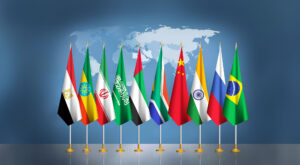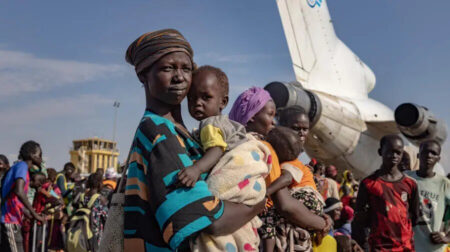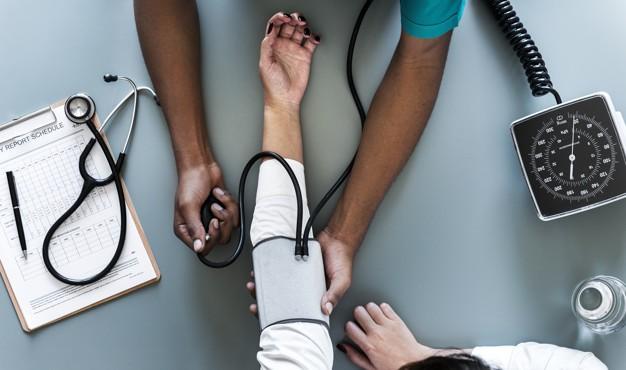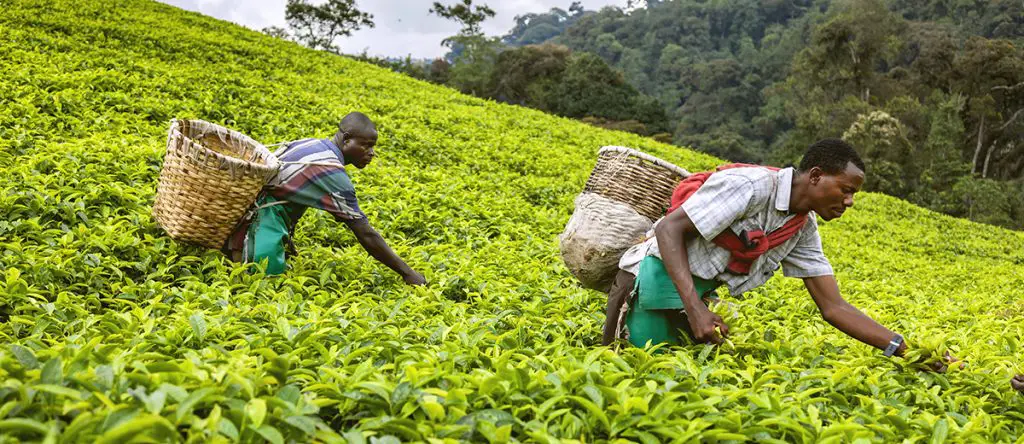- IMF Growth Forecasts: BRICS to Lead the World in the Next 5 Years
- Vantage Capital seals exit from PickAlbatros Hotels after $18.4M pandemic boost
- Madica backs Earthbond in bold pre-seed bet on sustainable solutions
- Venture capital and debt drive growth in Kenya’s agri-tech sector
- Sustainability Week Africa: Pioneering change amidst climate challenges
- Refugee Crisis in Chad as War and Hunger in Sudan Drive Thousands Across Border
- Senegal 2050: A Blueprint for Economic Transformation
- Kenya’s banking sector corporate taxes hit $563.7 million despite industry profit drop
Browsing: Health
- Over a decade since gaining independence, South Sudan continues to be affected by fragility, economic stagnation, and instability.
- South Sudan’s economy is clouded by production bottlenecks in the oil sector, with production dwindling in the face of limited new investment.
- The susceptibility of South Sudan to climate change and natural calamities exacerbates the nation’s economic challenges, threatening the progress of growth and development initiatives.
The Republic of South Sudan emerged as the world’s newest sovereign state and the 54th country in Africa on July 9, 2011. However, the progress of development post-independence was significantly hampered by civil war outbreaks in 2013 and 2016, which also aggravated the humanitarian crisis.
Over a decade since gaining independence, South Sudan continues to be affected by fragility, economic stagnation, and instability. Pervasive poverty is further intensified by ongoing conflict, displacement, and external shocks.
Crisis facing the oil and energy sector
Oil production is …
The market growth is extensively attributed to the rising health and fitness awareness, growing penetration of the internet & smartphones, and increased consumer disposable income levels.
The rising adoption has led to an increase in device development & innovation as more market players race in to deliver the growing demand and capture a higher market share.
According to Kewalramani, to set itself apart from competitors, Fitbit has evolved from being a pure fitness tracking device company to bringing more functionality and innovation around stress and sleep management to help users gain control of their health goals.…
- The centre was built through a partnership between the locally-owned GE Healthcare’s entity and Kenyatta University Teaching, Referral & Research Hospital (KUTRRH)
- In Kenya, cancer is the third leading cause of death, after infectious and cardiovascular diseases
In a major milestone for the fight against cancer in Kenya, the President of the Republic of Kenya, Uhuru Kenyatta, has inaugurated the first publicly-owned comprehensive Integrated Molecular Imaging Centre for the diagnosis and treatment of Cancer in Sub Saharan Africa.
The centre was built through a partnership between the locally-owned GE Healthcare’s entity and Kenyatta University Teaching, Referral & Research Hospital (KUTRRH). The Center will provide lifesaving equipment along the cancer care pathway – from screening and diagnosis to staging, to determining the correct treatments.
This will support the improvement of cancer survival rates and serve patients across Kenya. Critically, it will also enable more cancer research to be carried out, offering …
The Kuwait Foundation for the Advancement of Sciences (KFAS) (www.KFAS.org) announced the appointment of Dr. Khaled Ali Al-Fadhel as the new Director General of the Foundation in March. In this capacity, he will also serve on the Board of Trustees for the Al-Sumait Prize for African Development (www.AlSumaitPrize.org). Dr. Al-Fadhel succeeds Dr. Adnan Shihab-Eldin, who retired earlier this year, and had served as Director General of KFAS since 2011, as well as a member of AlSumait Prize Board of Trustees since 2015.
When asked about his vision for Al-Sumait Prize for African Development, he stated: “It is our goal to elevate the impact and standing of Al-Sumait Prize. One of the most certain ways to ensure that humanitarian efforts and initiatives continue their momentum, and their perceptible success, is to establish awards such as Al-Sumait Prize that aim to recognize the accomplishments of organizations and researchers dedicated to the creation …
The Government of Sweden gave $4.4 million to the United Nations Children’s Fund (UNICEF) to support Uganda’s COVID-19 response and efforts towards the continued delivery of essential health services for pregnant and breastfeeding women, young children, newborns and adolescents.
UNICEF and its partners have continued to help Uganda in controlling, containing and mitigating the impact of COVID-19 pandemic. The organization is mostly focused on strengthening access to essential services like health care.
Due to restrictions on movement and fears of contracting the virus, many women and children have missed out on much-needed health care, including newborn and maternal care, HIV medications, vaccinations and nutrition services, exposing them to heightened danger.
Also Read:Redefining the health system in Africa after the pandemic
“Few things could be more important right now than supporting people’s health. It is extremely important that antenatal, delivery, and postnatal services, along with different levels of emergency care …
Tanzania’s National Bureau of Statistics (NBS) report on the first-quarter gross domestic product (GDP) showed that the Tanzania economy managed to hit 5.7 per cent growth in Q1 compared to 6.3 per cent in the previous year similar quarter.
According to the report, the Q1 value of GDP in absolute terms GDP stood at around $ 15 billion compared to over $14 billion in 2019. On the same mark, the value of GDP at 2015 constant prices rose to nearly $13 billion in Q1 from $9 billion in the corresponding quarter in 2019.
However, the comprehensive report shows that the reformed mining and quarrying industry recorded the highest growth at 15.3 per cent and gold production was a factor.
The newly World Bank categorized middle-income nation of more than 58 million, also saw growth from human health and social work activity (10.2 per cent), professional, scientific and technical activity (8.9 …
By Sachen Gudka
Coronavirus is our wake-up call. No one could have predicted its disastrous impact. But that is the nature of disasters; most are sudden, unpredictable and leave in their wake unimaginable misery and loss. We have been quite rudely awakened to the essentiality of disaster resilience.
Anything that we do from now on, any buildings, any plans and any developments as a country have to be done through a disaster resilience lens. Any policies developed and implemented should be able to answer the questions: ‘Will they help us get through the next disaster shock with minimal loss? Will they help us bounce back fast enough and set us on our feet to recover quickly? And more importantly, if we are ever to be left with no options but to close our borders, can we sustain ourselves?’
At the moment, efforts to reduce exposure and spread of the virus …
If there is anything that the spread of the COVID-19 (Coronavirus) pandemic across the world leading to partial or total lockdown in several countries has taught us, is that we need to be prepared financially for any eventualities today more than ever.
Barely two months ago, people across the world were planning and budgeting for the New Year without the realization that soon many would be losing employment or experiencing a cut of their normal income.
The global pandemic has brought the world to a standstill. This is an unprecedented time of trying to manage our lives behind closed doors, reaching out to those who need our help, and somehow remain afloat with the minimal income we have left.
Although the pandemic is just in its early stages in East Africa and most African countries, we should be learning from other countries like China and Italy. If we adapt to …
When we speak of inclusivity in healthcare, cleft lip and palate surgery is often considered a footnote in the priorities given to healthcare financing. Around the world, many children with clefts live in isolation, making it difficult to make friends and go to school, but more importantly, have difficulty eating, breathing, and speaking. As we seek to achieve Universal Health Coverage, the long-term benefit of treating a single cleft at an early stage can bring in as much as $50,000 to the economy. This economic benefit therefore deserves to be considered a priority as governments address paediatric surgical care.
The Fourth meeting of the Global Initiative for Children’s Surgery (GICS IV) which took place in Johannesburg from 17th-18th January 2019, brought together providers and implementers of surgical services for children, along with health, advocacy, and policy experts. Participants discussed the current state of surgical care for children…
World Bank’s (WB) research on development economics which is focused on identifying successful development polices, has captured various significant insights in the world of development economics, and payment of health and education providers was in it, thus—there are crucial things to rethink to enhance the delivery of quality services.
According to the bank’s research, service providers—schoolteachers and health workers, in particular, are influenced by the payment incentives which dictate high-quality services. But how much they are paid also matters.
Taking the youngest continent in the globe into the context, Africa, of which its average real ages increased by 20 per cent between 2006 and 2017, supported by labour productivity gains, stand to benefit from revised payment schedules, as described by the bank.
Three ways service providers are paid
Fee-for-service is the first schedule of payment, that health workers and schoolteachers tend to get paid on, according to the specific services …










